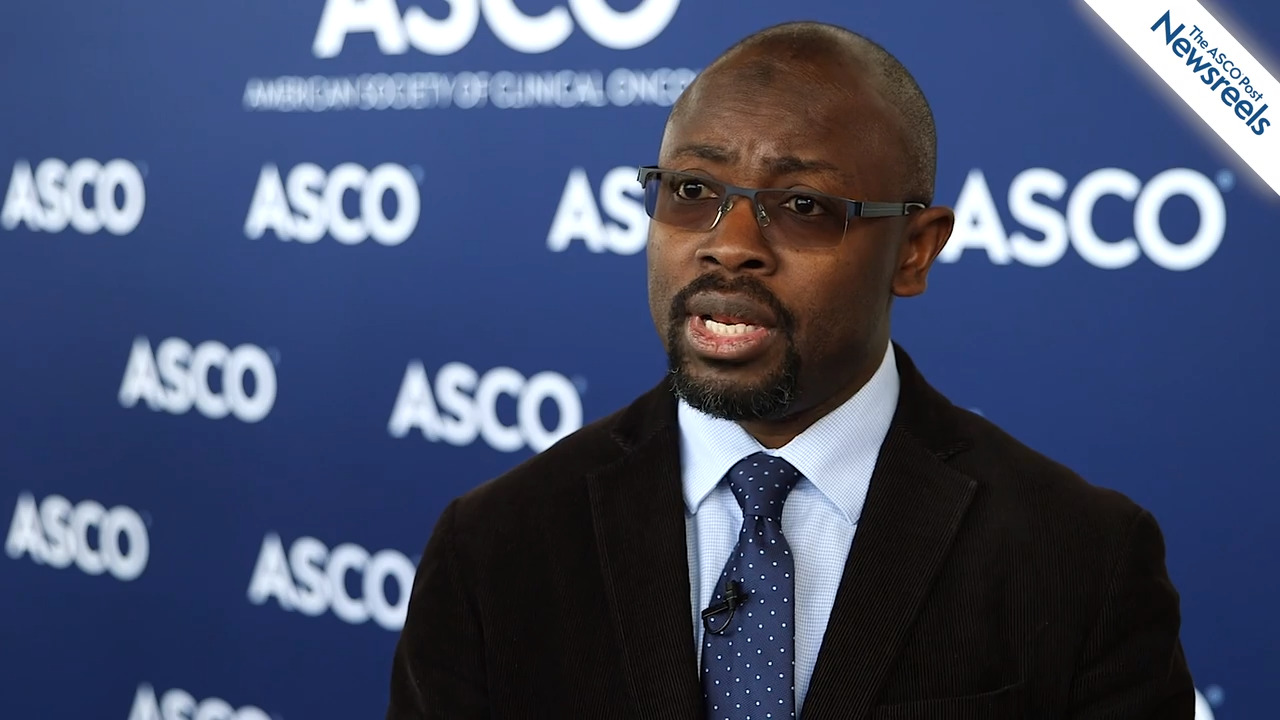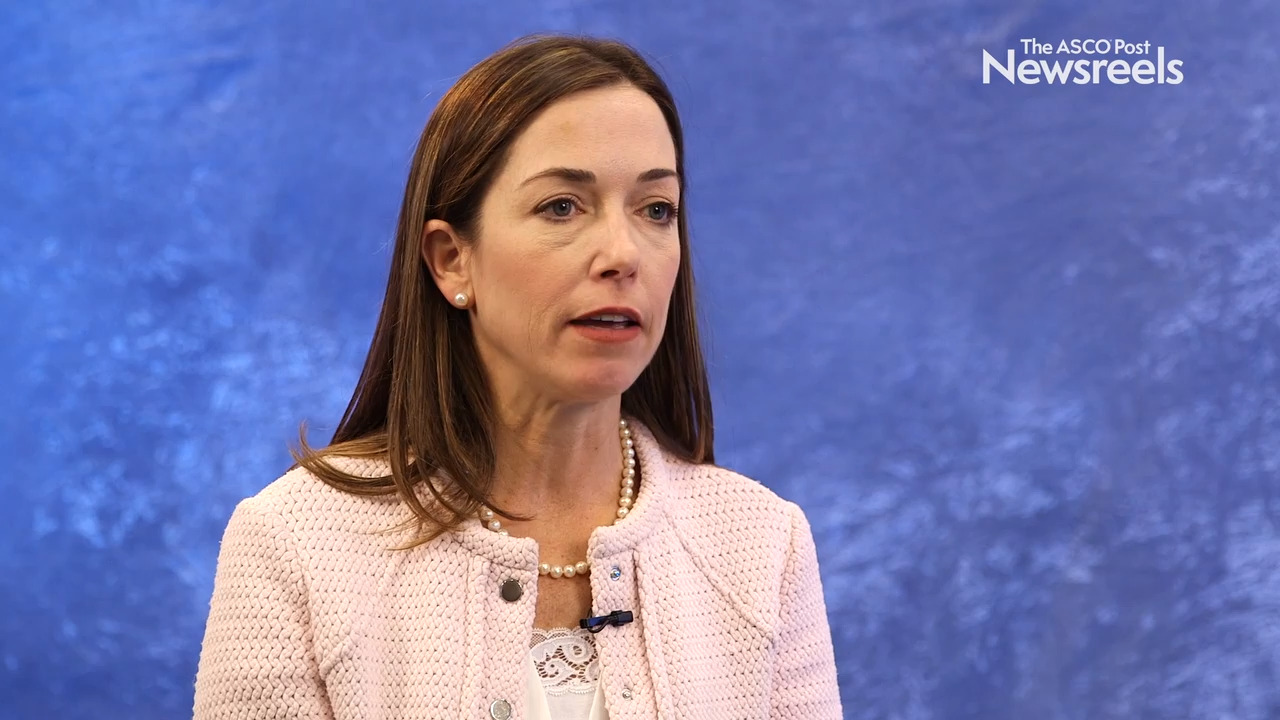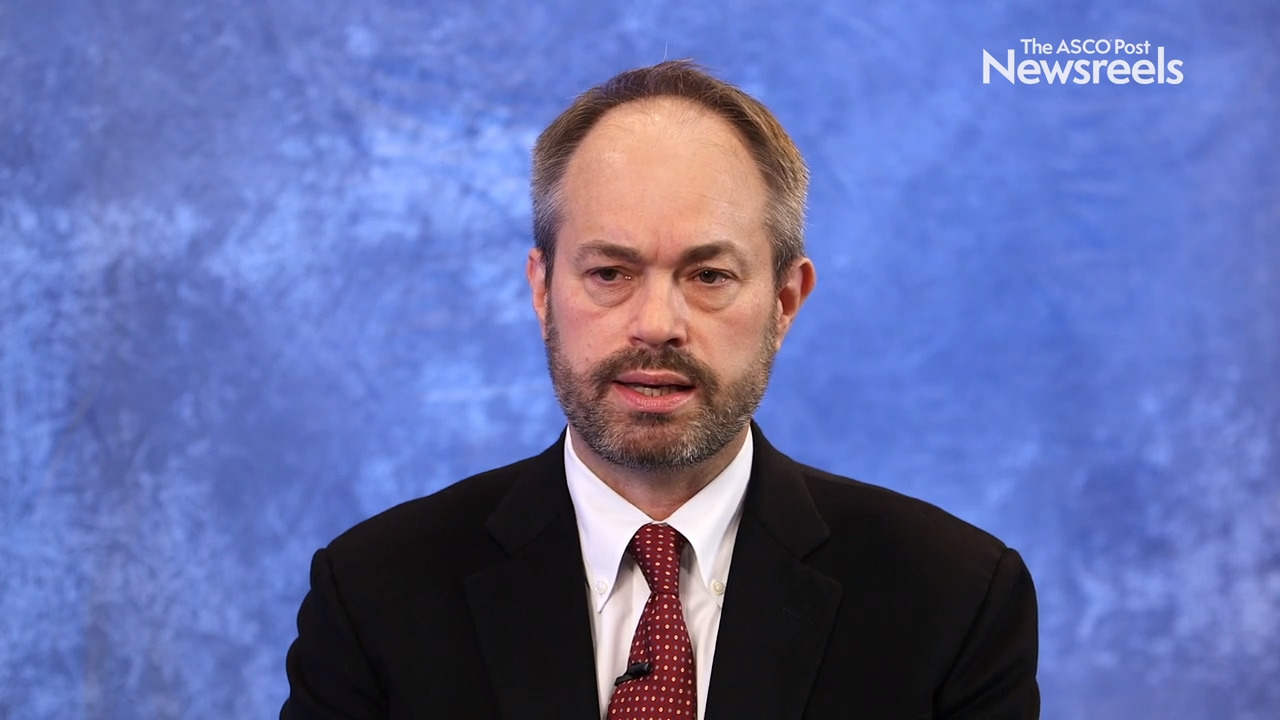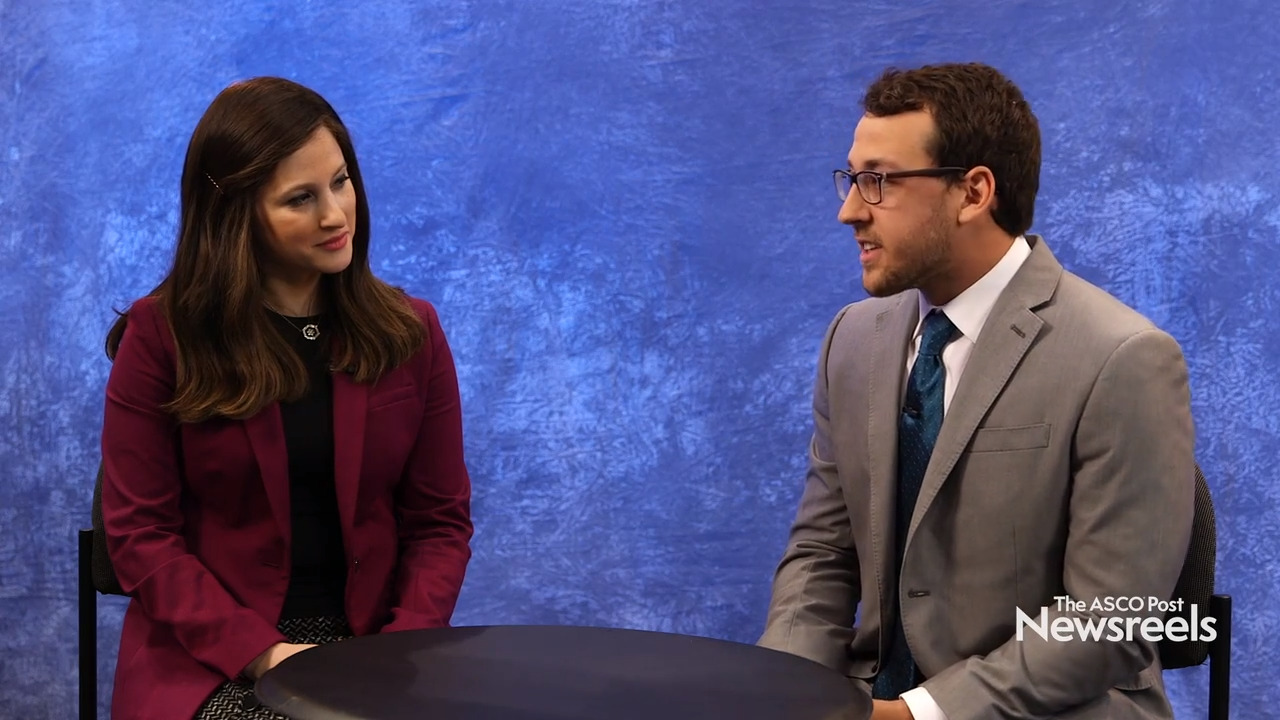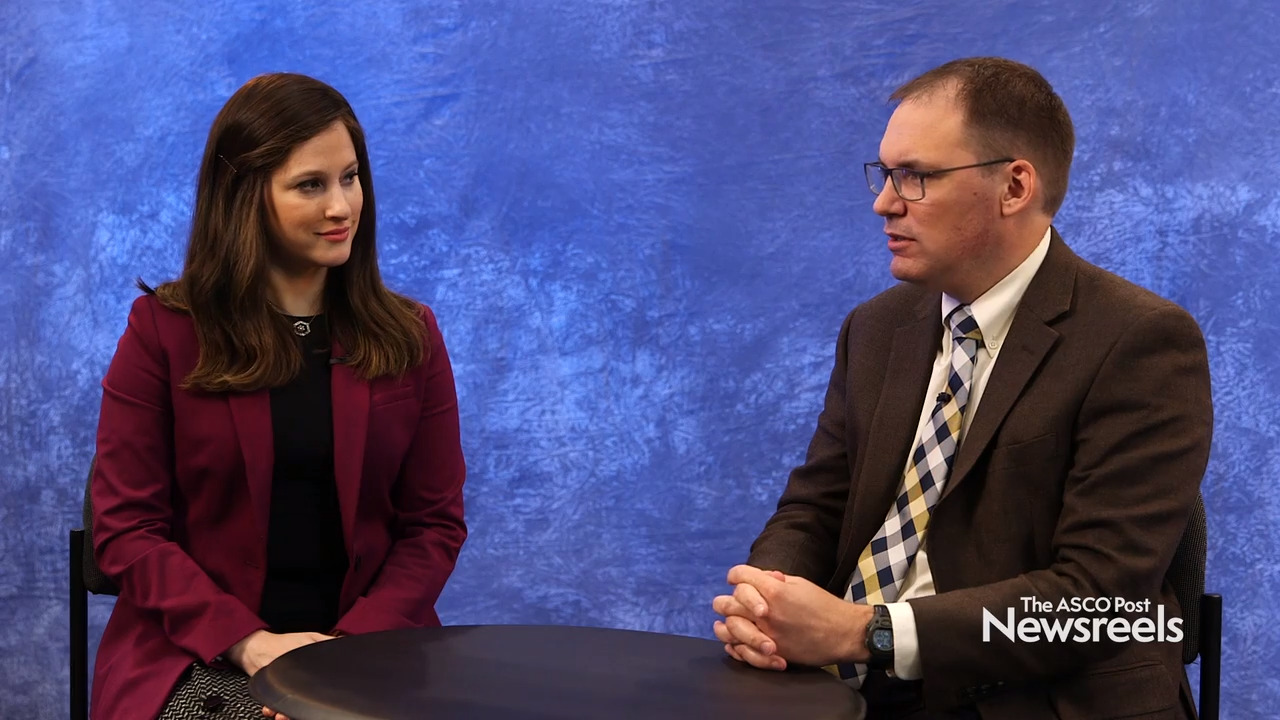Luis G. Paz-Ares, MD, PhD, on Small Cell Lung Cancer: Efficacy and Safety of Lurbinectedin
2019 ASCO Annual Meeting
Luis G. Paz-Ares, MD, PhD, of Hospital Universitario 12 de Octubre, discusses study findings on the second-line use of lurbinectedin in patients with both resistant and sensitive small cell lung cancer (Abstract 8506).
Taofeek Kunle Owonikoko, MD, PhD, of Emory University, discusses the findings of his phase II study, which assessed the efficacy of combined immune checkpoint inhibitors with or without radiation in relapsed small cell lung cancer (Abstract 8515).
Sara A. Hurvitz, MD, of the David Geffen School of Medicine, University of California Los Angeles, discusses 3-year outcomes from the first phase III study to test a non-conventional regimen for the neoadjuvant and adjuvant treatment of HER2-positive breast cancer (Abstract 500).
William G. Wierda, MD, PhD, of The University of Texas MD Anderson Cancer Center, discusses the TRANSCEND CLL 004 trial, which studied the use of an experimental CD19-directed CAR T-cell product in heavily pretreated patients with chronic lymphocytic leukemia or small lymphocytic lymphoma (Abstract 7501).
Miriam Knoll, MD, of Hackensack University Medical Center, and Richard J. White, DO, of Allegheny Health Network, discuss improved overall survival among younger female patients with non–small cell lung cancer who have a lower comorbidity score, lower grade, private insurance, and treatment with intensity-modulated radiation therapy (Abstract 9024).
Miriam Knoll, MD, and Zachery Reichert, MD, PhD, discuss the FORCE trial, which is examining whether radiation can create a more durable response to systemic therapy, and whether using newer, more sensitive imaging technologies can improve outcomes (Abstract TPS5096).
